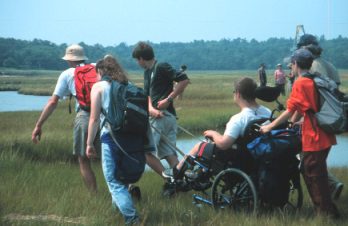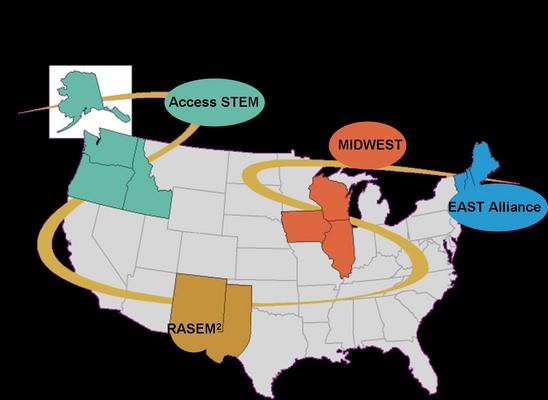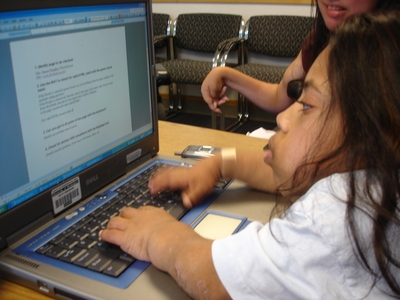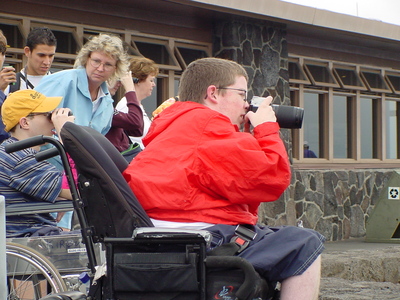With
support from the National Science Foundation’s (NSF) Research
in Disabilities Education (RDE) program, four regional alliances
were created to increase the quality and quantity of students
with disabilities completing science, technology, engineering and
mathematics (STEM) degrees in 14 states: Alaska, Idaho, Illinois,
Iowa, Maine, Massachusetts, New Hampshire, New Mexico, Oregon,
Rhode Island, Texas, Vermont, Washington and Wisconsin. Over
6,000 primary, secondary, community college and university
students with disabilities have been served through these
projects, with over 9,000 students who do not have disabilities
benefiting from the inclusive educational and research
activities. These four alliances, which are based at the
University of Southern Maine, New Mexico State University, the
University of Washington, and the University of
Wisconsin-Madison, include networks of regional academic
institutions partnering with industry, government, and national
research labs to provide comprehensive educational and research
experiences for students. International collaborations are also
taking place with academic and government partners in Japan,
Korea, Singapore and India.
The regional alliances have
provided job shadowing experiences, research internships, or
industry externships for over 150 high school and college-age
students with disabilities. The alliances place students with
disabilities in IBM, NASA, and university nanotechnology labs
that offer research and mentoring experiences, which open doors
to career paths in STEM. The alliances are collecting data to
track the progress of students with disabilities as they
transition from high school to college, from college to graduate
school, and from graduate school to the STEM workforce. The
multi-state student tracking system targets the key educational,
research, and mentoring experiences contributing to the success
of students with disabilities in STEM careers.
In
addition to working with students who have disabilities, the RDE
alliances also educate teachers and parents about educational
supports for students pursuing STEM education and careers. The
Regional Alliance for Science, Engineering and Mathematics
Squared (RASEM2) located at New Mexico State University, funded
over 80 RASEM2 projects for teacher training and for students in
K-12 schools, as well as for students at 2-year and 4-year
post-secondary institutions. Another alliance, the Northwest
Alliance for Access to Science, Technology, Engineering, and
Mathematics (AccessSTEM), based at the University of Washington,
engaged over 1100 K-12 educators and parents in training
presentations during the fourth year of project funding.
AccessSTEM information was also disseminated to over 4300
educators and parents at professional and educational meetings.
With
the success of effective mentoring, educational, research,
training and internship programs provided by the four RDE
regional alliances to students, faculty, and the
community-at-large, these projects continue to successfully
broaden the participation of students with disabilities in STEM.





